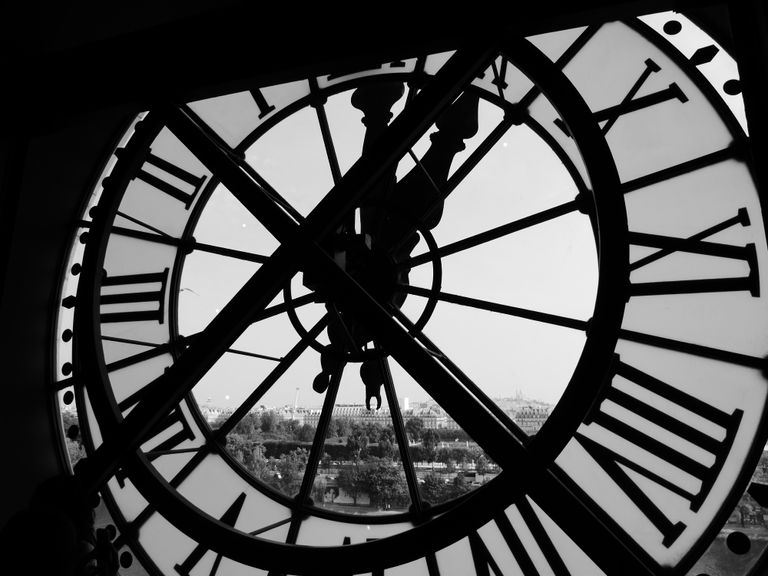

If we are given the opportunity to mature, the passage of time carries with it the experience of growing older, but the same passage of time can also revitalize if we use it correctly. Although we have the ability to speed up time, doing so only serves to benefit us. We can waste time till it expires, but we can also invest in it, use it properly, and profit from doing so.
We humans commemorate the passage of time, whether for religious or secular reasons.
We mark time to show that it has passed. We've done that ever since. When our early ancestors gazed up at the night sky, they noticed that the celestial events above them continued repeating themselves, albeit not exactly in the same way and at intervals that we now refer to as days, months, years, and so forth. Chronos, as it was known to the Greeks in antiquity, is this linear time.
We regard this kind time so highly because we only get a certain amount of it. This kind of time cannot be earned again. In order to maintain track of its passing, we continue to check it off. We start our daily trip as the sun rises every morning, starting what is known as a day. A "moonth"—a monthly cycle that lasts twenty nine and a half days—is the length of the moon's orbit. The spring equinox follows a cycle that corresponds to what we traditionally refer to as a year, which is actually 365.25 days. For this reason, we observe a leap year every fourth year.
We all experience an other kind of time, a time without measurement, in addition to chronos. This duration is known as eternity. The ancients had the view that God dwells in this period. The Greeks referred to this period as Kairos. We frequently overlook the worth of such time because it cannot be measured in a linear fashion.
There are no restrictions on Kairos time, and we can use it to change how we spend Chronos time. While we cannot extend such a period of time, we can thicken or deepen its experience. Kairos time is of a high order. It is judged by the intensity of the moment, not by how long it lasts or how many seconds. What Blake referred to as infinity in an hour is this. In these instances, it seems as though the entire universe is taking a breath; our entire lives are capable of changing, but in terms of measurable "chronos" time, it lasted no longer than any other second.



Si se nos da la oportunidad de madurar, el paso del tiempo lleva consigo la experiencia de envejecer, pero el mismo paso del tiempo también puede revitalizar si lo usamos correctamente. Aunque tenemos la capacidad de acelerar el tiempo, hacerlo solo sirve para beneficiarnos. Podemos perder el tiempo hasta que caduque, pero también podemos invertir en él, usarlo adecuadamente y sacar provecho de ello.
Los humanos conmemoramos el paso del tiempo, ya sea por motivos religiosos o seculares.
Marcamos el tiempo para mostrar que ha pasado. Lo hemos hecho desde entonces. Cuando nuestros primeros ancestros miraron hacia el cielo nocturno, notaron que los eventos celestiales sobre ellos continuaban repitiéndose, aunque no exactamente de la misma manera y en los intervalos a los que ahora nos referimos como días, meses, años, etc. Chronos, como era conocido por los griegos en la antigüedad, es este tiempo lineal.
Valoramos mucho este amable tiempo porque solo recibimos una cierta cantidad de él. Este tipo de tiempo no se puede volver a ganar. Para mantener un registro de su paso, continuamos marcándolo. Comenzamos nuestro viaje diario como sale el sol cada mañana, comenzando lo que se conoce como un día. Una "luna", un ciclo mensual que dura veintinueve días y medio, es la longitud de la órbita de la luna. El equinoccio de primavera sigue un ciclo que corresponde a lo que tradicionalmente llamamos año, que en realidad tiene 365,25 días. Por esta razón, observamos un año bisiesto cada cuatro años.
Todos experimentamos otro tipo de tiempo, un tiempo sin medida, además del crono. Esta duración se conoce como eternidad. Los antiguos tenían la opinión de que Dios mora en este período. Los griegos se refirieron a este período como Kairos. Con frecuencia pasamos por alto el valor de ese tiempo porque no se puede medir de forma lineal.
No hay restricciones en el tiempo de Kairos, y podemos usarlo para cambiar la forma en que pasamos el tiempo de Chronos. Si bien no podemos extender ese período de tiempo, podemos espesar o profundizar su experiencia. El tiempo de Kairos es de un orden elevado. Se juzga por la intensidad del momento, no por cuánto dura o cuántos segundos. A lo que Blake se refirió como infinito en una hora es esto. En estos casos, parece como si todo el universo estuviera tomando un respiro; nuestras vidas enteras son capaces de cambiar, pero en términos de tiempo "cronos" medible, no duró más que cualquier otro segundo.
